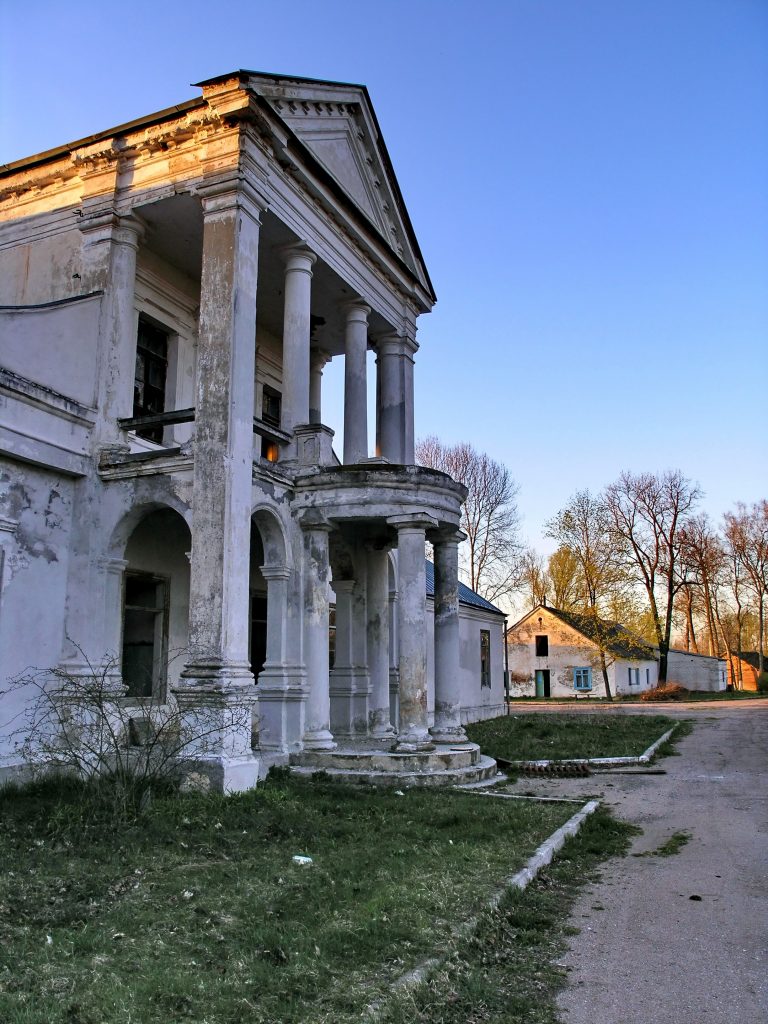
Imagine that you and your spouse have spent years planning, waiting, and paying for the construction of your new home. Upon its completion, you excitedly move in, relieved that the wait is over and that you no longer have to stay in a little trailer next to the construction site. Things are great for the two of you. However, in the eight years that follow, a list of complaints about your newly built home grows longer and more serious. To name a few, the rooms are rotting, doors are sagging, the sheetrock is cracking — and, just like that, your dream home has become nothing less than a nightmare. This is exactly what happened to Joseph and Joann Catalanotto and their home in Hammond, Louisiana.
The Catalanottos moved into their home in March of 1996. In 2004, the couple sent a letter to to Jim Walter Homes, Inc. (“JWH”) detailing several major problems they had encountered with the home. The listed problems included the following: (1) The piers are sinking and leaning out; (2) The kitchen floor is swelling, the living room floor has a large dip, and the master bedroom floor is uneven; (3) The utility room is rotting; (4) The back porch is pulling away from the house and rotting; ( 5) The corner fascia boards are pushed away from the house; (6) The front porch does not have the correct pitch to it, causing water to come to the front door; (7) The doors are sagging; (8) The sheetrock has cracks; (9) The hardiplank siding is cracking and breaking. Although JWH sent various supervisors and contractors to address some of the complaints, JWH notified the Catalanottos in 2005 that the home was out of warranty and that JWH would not undertake any further repairs unless any given problem is deemed (that is, by a court) to have resulted from a structural failure covered by a ten-year warranty.
Accordingly, the Catalanottos turned to the courts to make such a determination about the home’s defects. The couple filed a lawsuit against JWH in 2006 alleging that JWH violated the New Home Warranty Act, LSA-R.S. 9:3141, et. seq., (“NHWA”) by not constructing the home in conformity with the applicable building standards. In June 2013, the Catalanottos’ retained an expert witness, Darrel Fussel (“Fussel”), who testified at the trial. Although JWH also retained an expert for trial, JWH did not call on its expert at trial. As such, after hearing and considering the trial testimony, albeit only from the Catalanottos’ expert witness, the trial court ruled in favor of the plaintiff couple, finding that the home was not free from structural defects within ten years of its purchase (note: although the NHWA currently protects new homes for only five years instead of ten, the time limit that governs is that which was in force at the time the home was finished in 1996 — ten years). The court accordingly awarded the Catalanottos $60,000 plus seventeen-and-a-half years of interest at eight percent (totaling, $166,068), $12,000 in attorney fees, and judicial interest and court costs.

 Louisiana Personal Injury Lawyer Blog
Louisiana Personal Injury Lawyer Blog



 A recent case arising out of Tensas Parish, Louisiana, highlights the importance of checking on leases that burden any land before purchase. “Legacy lawsuits” are claims that oil and gas operations caused contamination on a property and generally name any operators who worked at the property and could have contributed to the contamination. In this aspect, the case out of Tensas Parish is no different. This case involves a legacy lawsuit where landowners purchased a property in 2002, but the property was subject to mineral leases/servitudes as early as the 1940s by different oil and gas companies.
A recent case arising out of Tensas Parish, Louisiana, highlights the importance of checking on leases that burden any land before purchase. “Legacy lawsuits” are claims that oil and gas operations caused contamination on a property and generally name any operators who worked at the property and could have contributed to the contamination. In this aspect, the case out of Tensas Parish is no different. This case involves a legacy lawsuit where landowners purchased a property in 2002, but the property was subject to mineral leases/servitudes as early as the 1940s by different oil and gas companies.
 A land dispute in Evangeline Parish once again highlights the intricacies of Louisiana property law, and the need for an experienced lawyer if you ever find yourself involved in a property dispute. The dispute in question involves the title to 18 acres of a 23-acre tract of immovable property located in Evangeline Parish. Acme Land Company purchased the full 23 acres in 1910. In 1910, the property purchased by Acme was located in what was then St. Landry Parish, but the property was subsequently carved out with other immovable property to establish what is today Evangeline Parish, and the deed of acquisition is duly recorded in the conveyance records of Evangeline Parish.
A land dispute in Evangeline Parish once again highlights the intricacies of Louisiana property law, and the need for an experienced lawyer if you ever find yourself involved in a property dispute. The dispute in question involves the title to 18 acres of a 23-acre tract of immovable property located in Evangeline Parish. Acme Land Company purchased the full 23 acres in 1910. In 1910, the property purchased by Acme was located in what was then St. Landry Parish, but the property was subsequently carved out with other immovable property to establish what is today Evangeline Parish, and the deed of acquisition is duly recorded in the conveyance records of Evangeline Parish. A recent case from the Fifth Circuit Court of Appeal for the State of Louisiana demonstrates the importance of ensuring a client has all relevant evidence before proceeding with a lawsuit. Although the Plaintiffs eventually had all sanctions dropped for “pursuing a meritless case”, they could have saved a lot of time and effort had they properly investigated all of the facts prior to filing the lawsuit.
A recent case from the Fifth Circuit Court of Appeal for the State of Louisiana demonstrates the importance of ensuring a client has all relevant evidence before proceeding with a lawsuit. Although the Plaintiffs eventually had all sanctions dropped for “pursuing a meritless case”, they could have saved a lot of time and effort had they properly investigated all of the facts prior to filing the lawsuit. We enter into contracts all the time without even realizing it. However, when you enter a contract for the sale of commercial property, you know it — long documents, lots of formalities, and possibly substantial monetary consequences are involved. You had better be sure you want to sell that property. As a recent case illustrates, even if a party to a contract for the sale of commercial property changes their mind, a court can still enforce the contract and order that party to perform. In other words, a court can order a seller to abide by the terms of the contract and complete the sale of commercial property to the purchaser.
We enter into contracts all the time without even realizing it. However, when you enter a contract for the sale of commercial property, you know it — long documents, lots of formalities, and possibly substantial monetary consequences are involved. You had better be sure you want to sell that property. As a recent case illustrates, even if a party to a contract for the sale of commercial property changes their mind, a court can still enforce the contract and order that party to perform. In other words, a court can order a seller to abide by the terms of the contract and complete the sale of commercial property to the purchaser. Residents of Louisiana may sometimes feel like there is no other place quite like their home state, but as a recent case out of Vermillion Parish demonstrates, when it comes to the laws regarding land and property, Louisiana truly is one-of-a-kind. Thanks to Louisiana’s history with the Napoleonic Code, Louisiana residents deal with legal issues other State residents never face, such as servitudes, usufructs, and acquisitive prescription. The following case out of Vermillion Parish caused the Louisiana Supreme Court to settle a land dispute by analyzing if a proclaimed landowner qualified as owner of the disputed land through acquisitive prescription and along the way provides some insight into how those terms are defined under code.
Residents of Louisiana may sometimes feel like there is no other place quite like their home state, but as a recent case out of Vermillion Parish demonstrates, when it comes to the laws regarding land and property, Louisiana truly is one-of-a-kind. Thanks to Louisiana’s history with the Napoleonic Code, Louisiana residents deal with legal issues other State residents never face, such as servitudes, usufructs, and acquisitive prescription. The following case out of Vermillion Parish caused the Louisiana Supreme Court to settle a land dispute by analyzing if a proclaimed landowner qualified as owner of the disputed land through acquisitive prescription and along the way provides some insight into how those terms are defined under code. Gerald O”Hara from Gone with The Wind said it best, “The land is the only thing in the world worth working for, worth fighting for, worth dying for, because it’s the only thing that lasts.” While land ownership is a sacred right in this nation it does not prevent the state government from taking your land through a process called expropriation.That process requires that the State of Louisiana pay a fair price for private land that has been expropriated for public needs. The state must be careful in ensuring that they pay full value for the expropriated land as Louisiana statutes allow the landowner to recoup attorney fees if they are successful in proving the payment was less than adequate. The following case out of West Feliciana Parish demonstrates what can happen when expropriation doesn’t lead to fair compensation.
Gerald O”Hara from Gone with The Wind said it best, “The land is the only thing in the world worth working for, worth fighting for, worth dying for, because it’s the only thing that lasts.” While land ownership is a sacred right in this nation it does not prevent the state government from taking your land through a process called expropriation.That process requires that the State of Louisiana pay a fair price for private land that has been expropriated for public needs. The state must be careful in ensuring that they pay full value for the expropriated land as Louisiana statutes allow the landowner to recoup attorney fees if they are successful in proving the payment was less than adequate. The following case out of West Feliciana Parish demonstrates what can happen when expropriation doesn’t lead to fair compensation.